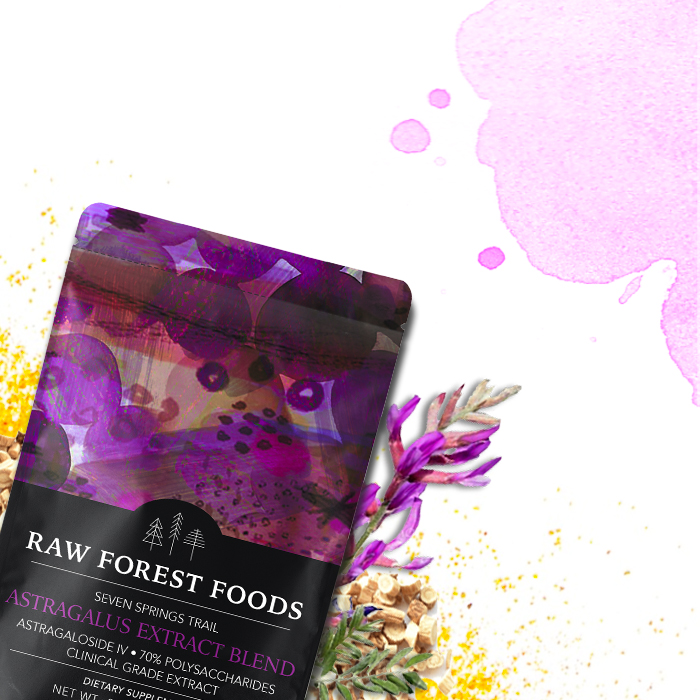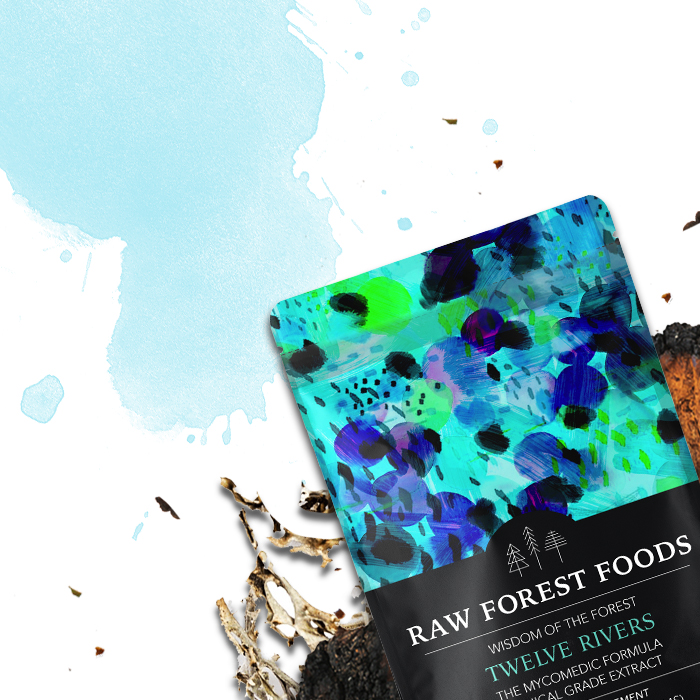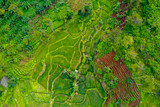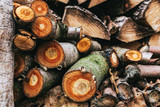Fortify Immune Health
Small Steps and Big Changes
We're experiencing an unusual Fall here in the Northeast. The weather is absolutely gorgeous, making it almost easy to forget the season. However, it is undoubtedly Fall, and people are starting to get sick.
The most impactful steps towards improved immune health begin with small personal lifestyle changes. Reinforcing our foundation through these modifications does 90% of the work and sets the stage for herbal medicine to truly shine. This is true for immune health and all aspects of well-being.

Here, we briefly cover the top three lifestyle modifications to bolster immune health: Sleep, Nutrition, and Stress. This is the Holy Trinity of health. While physical activity is integral to every aspect of life, including sleep, nutrition, and stress, it will not be separated out but acknowledged as a crucial part of the equation.
Following these lifestyle modifications, we will explore a few select herbs that can strengthen immune health. For more information on combining these herbs into immune tonics, see our blog post "DIY Immune Fortifying Tonics."
Sleep and Immune Health
Regardless of the time of year, sleep is paramount. Sleep is free and one of the most powerful medicines available. As we focus on immune health, sleep becomes the foundation upon which all other actions rely. Research on the relationship between sleep and immune health is conclusive: Poor sleep increases susceptibility to viruses, including the common cold, due to reduced cytokine and antibody production and increased inflammation and cortisol.

We need to begin valuing sleep—both personally and societally. While individual sleep needs vary, a good rule of thumb is to feel refreshed and well-rested upon waking. Feeling tired and groggy usually indicates insufficient sleep, while too much sleep can result in a "sleep hangover." Neither extreme is ideal. Children and teenagers need significantly more sleep than adults.
A recent article from National Public Radio (NPR) discusses how humans are the only animals that deprive themselves of sleep and how alcohol and caffeine negatively affect sleep. The need for teenagers to get more sleep is also highlighted.
I've long believed that sleep is "the next big thing," predicting the rise of group sleeping classes (nap time for adults) and sleep coaches. Sleep is critical, and without a solid foundation of sleep, most health and happiness efforts are in vain.
Nutrition and Immune Health
To ease stress on the immune system, reducing inflammation is key. Many consider inflammation the root of 99% of diseases. The most effective way to reduce inflammation is by eliminating inflammatory foods from the diet.
What we eat drives or inhibits disease. However, changing dietary habits can be challenging as food is deeply ingrained in our self-perception and personal narratives. Despite the difficulty, the benefits of improved nutrition are significant.
The decision to promote or inhibit inflammation through diet is powerful. While inflammation is necessary for healing, excessive inflammation amplifies disease and inhibits immune function. The standard American diet is grossly inflammatory, contributing to many diseases.

Replacing inflammatory foods with anti-inflammatory options increases beneficial phytonutrients and phytochemicals from fresh fruits and vegetables. There are over 2,500 known phytonutrients, including:
- Carotenoids
- Curcumin
- Ellagic acid
- Epigallocatechin-3-gallate
- Flavonoids
- Genistein
- Glucosinolates
- Luteolin
- Lycopene
- Piperine
- Resveratrol
- Sulforaphane
Phytonutrients are healing compounds with numerous benefits. Skipping fresh fruits and vegetables means missing the opportunity to heal through nutrition.
Top inflammatory foods (Organic Authority):
- Gluten
- Dairy
- Alcohol
- Caffeine
- Hydrogenated (trans) fats and highly refined cooking oil
- Fried foods
- Refined sugar
- Artificial sweeteners
- Processed/packaged foods
- Refined salt
Top anti-inflammatory foods (Dr. Axe):
- Green leafy vegetables
- Bok choy
- Celery
- Beets
- Broccoli
- Blueberries
- Pineapple
- Salmon
- Bone broth
- Walnuts
- Coconut oil
- Chia seeds
- Flaxseeds
- Turmeric
- Ginger
Stress and Immune Health
Stress is insidious and pervasive. It behaves like an invasive plant that, once established, grows exponentially throughout our bodies and psyches. However, actions taken to reduce stress can have a positive ripple effect across all areas of life.
Science clearly links stress and immune health. Ongoing stress makes us more susceptible to illness and disease by sending defense signals to the endocrine system, releasing hormones that prepare us for emergencies but severely depress immunity. Some experts claim that stress is responsible for up to 90% of all illnesses and diseases, including cancer and heart disease, due to its impact on inflammation, white blood cell count, and other immune functions:
Ongoing stress makes us susceptible to illness and disease because the brain sends defense signals to the endocrine system, which then releases an array of hormones that not only gets us ready for emergency situations but severely depresses our immunity at the same time. Some experts claim that stress is responsible for as much as 90% of all illnesses and diseases, including cancer and heart disease. The way it does this is by triggering chemical reactions and flooding the body with cortisol that, among other things, decreases inflammation, decreases white blood cells and NK cells (special cells that kill cancer), increases tumor development and growth, and increases the rate of infection and tissue damage (Psychology Today).
Reducing stress involves:
- Relaxation exercises, such as meditation and guided imagery
- Positive thinking
- Behavioral modifications
- Social support
Herbal Support for Immune Health
Astragalus (Astragalus membranaceus)
Astragalus improves immune health by supporting immune system regulation, promoting T-cell activation, and enhancing CD45 phosphatase activity. It also reduces inflammation, allowing the body to heal and better fight infection.
At RAW Forest Foods, we offer the Seven Springs Trail Astragalus Extract Powder Elixir, made with certified organic Astragalus membranaceus, prepared at a 2:1 ratio of broad spectrum standardized extract (70% polysaccharides) and an isolated Astragaloside IV extract.

Medicinal Mushrooms and Fungi
Medicinal mushrooms regulate the immune system, benefiting those with overactive immune systems leading to autoimmune disorders. Top medicinal mushrooms for immune health include:
- Chaga (Inonotus obliquus)
- Cordyceps (Cordyceps sinensis)
- Reishi (Ganoderma lucidum)
- Turkey Tail (Trametes versicolor)
We offer these in our Wild Siberian Chaga Extract Powder, Cloud Mushroom Turkey Tail Extract Powder, Eternal Well Cordyceps Extract Powder Elixir, and Duanwood Reishi Buddha Blend Extract Powder Elixir. For broader benefits, try our Twelve Rivers Functional Mushroom MycoMedic Elixir.

Shilajit
Shilajit is a top longevity and healthy aging (anti-aging) compound with powerful immune health benefits. Formed over geological time, Shilajit contains more than 84 minerals in ionic forms and numerous beneficial compounds. It supports immune health by activating macrophages and splenocytes, with actions including anti-allergic, anti-parasitic, antiseptic, and tumor growth reduction.
Our Mountain Manna Himalayan Shilajit Extract is harvested responsibly in the Himalayas, ensuring quality and potency.

The Takeaway
At RAW Forest Foods, we create products we love and believe in, not just those we think will sell well. The purpose of mentioning these products is to remind everyone that small lifestyle changes can have profoundly positive impacts on personal health, and select herbs can amplify the benefits of those positive changes.






